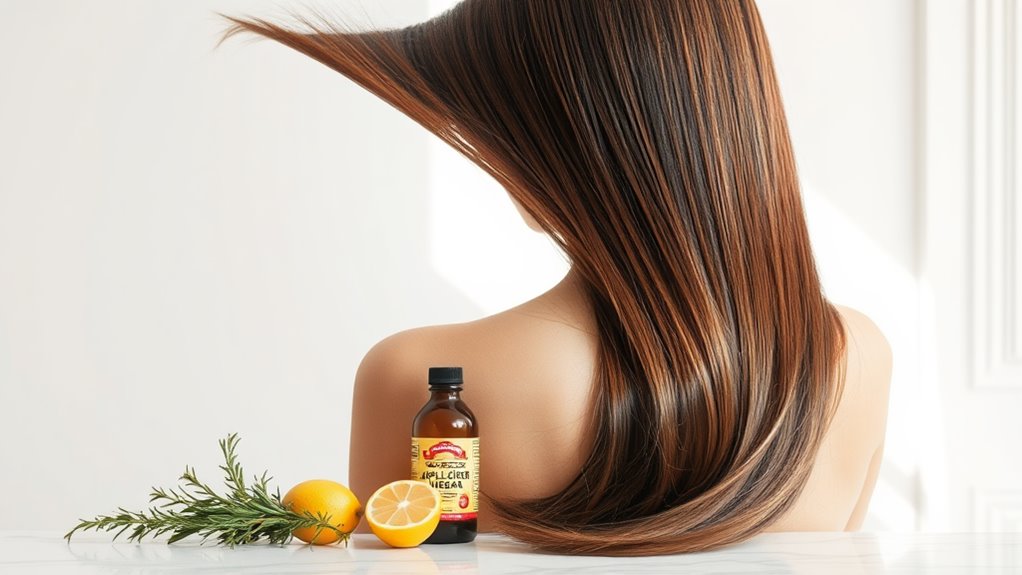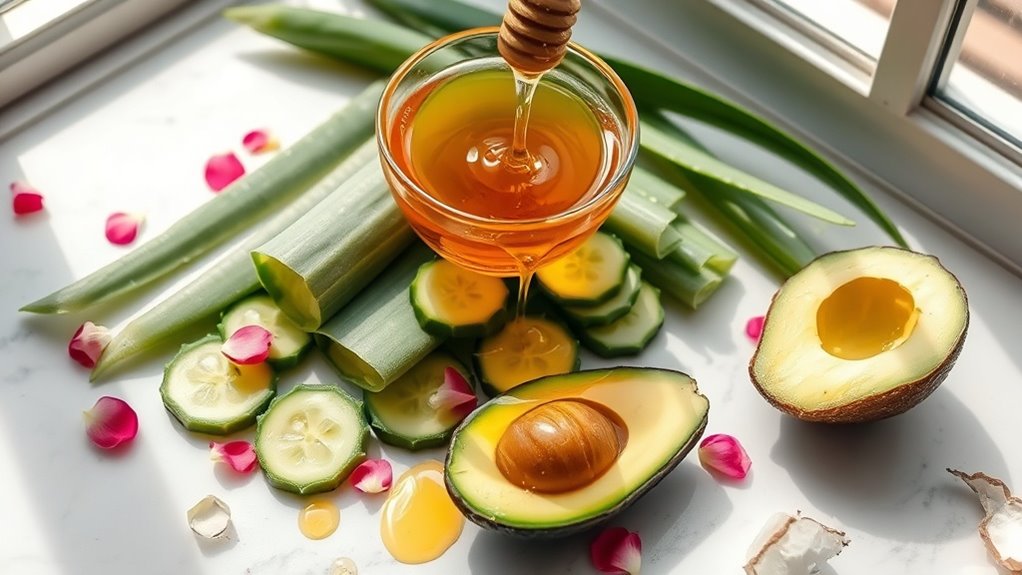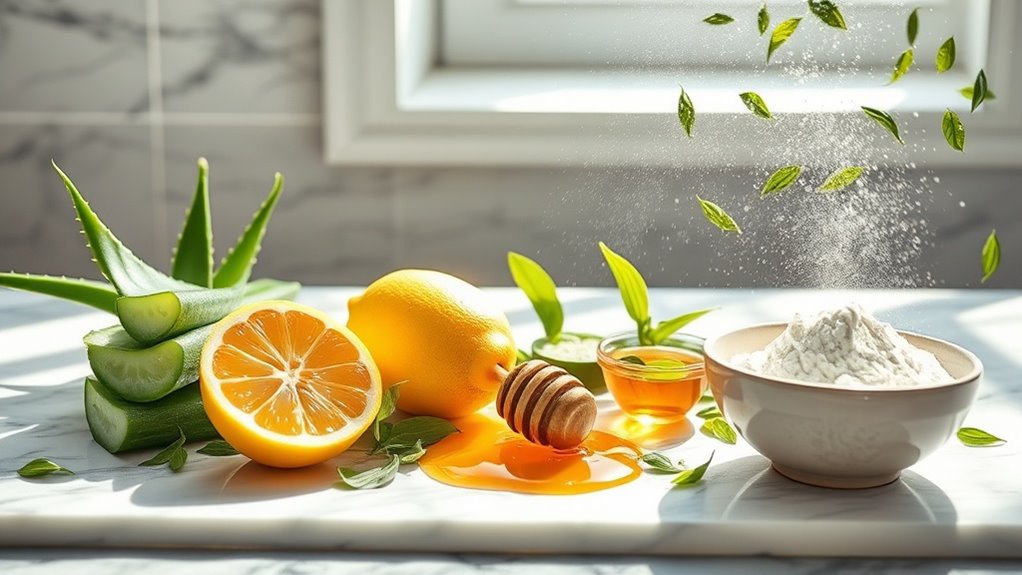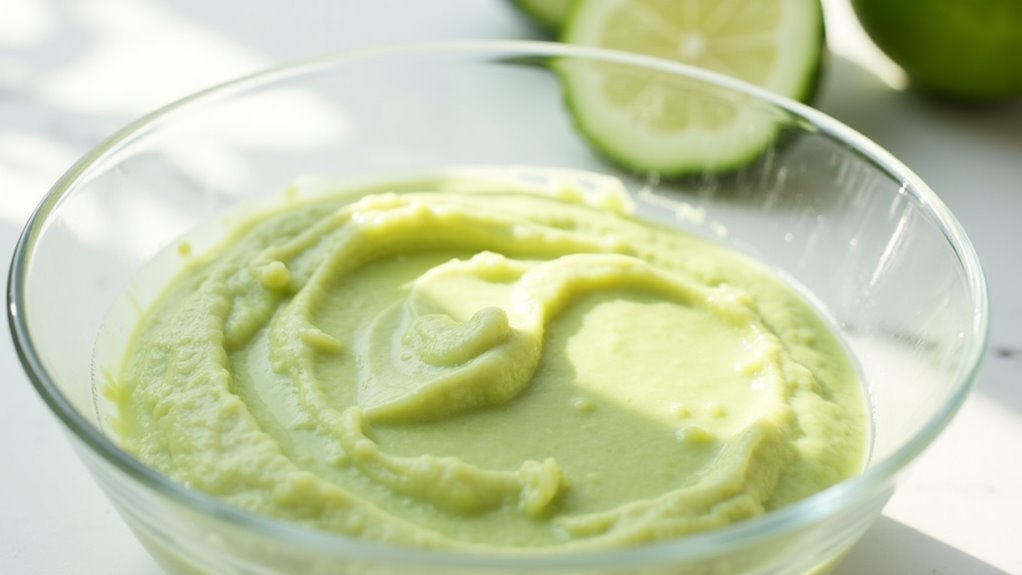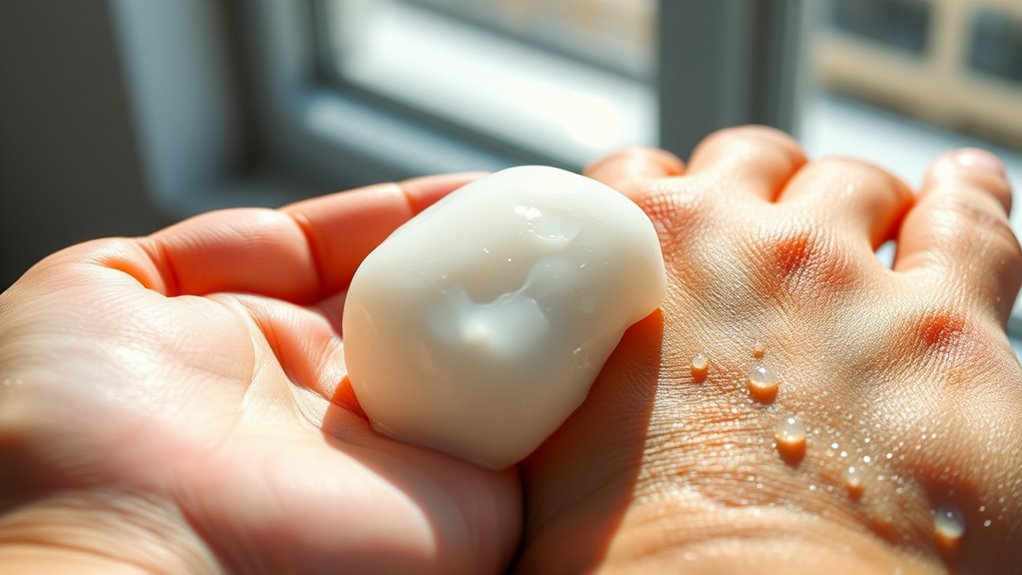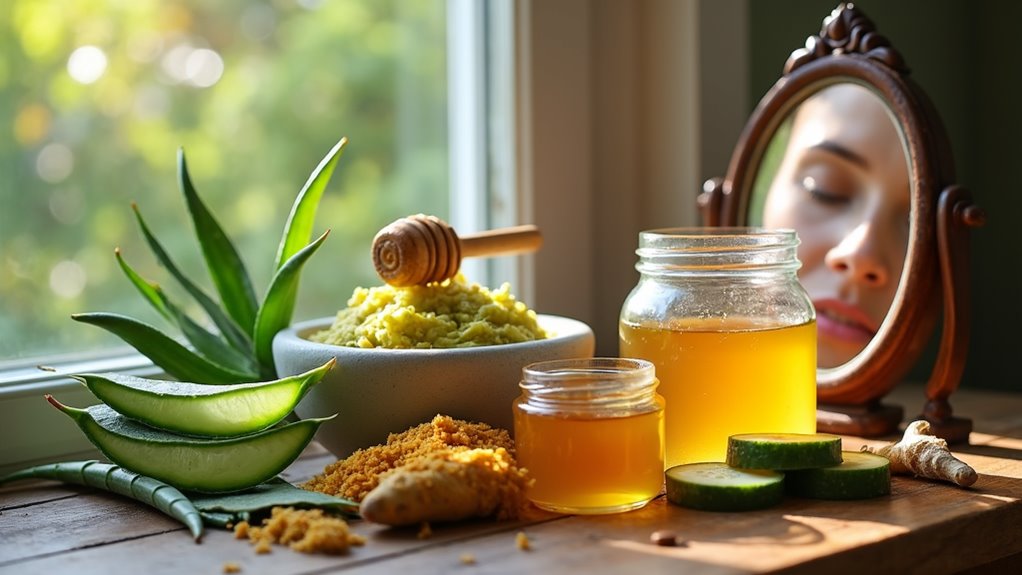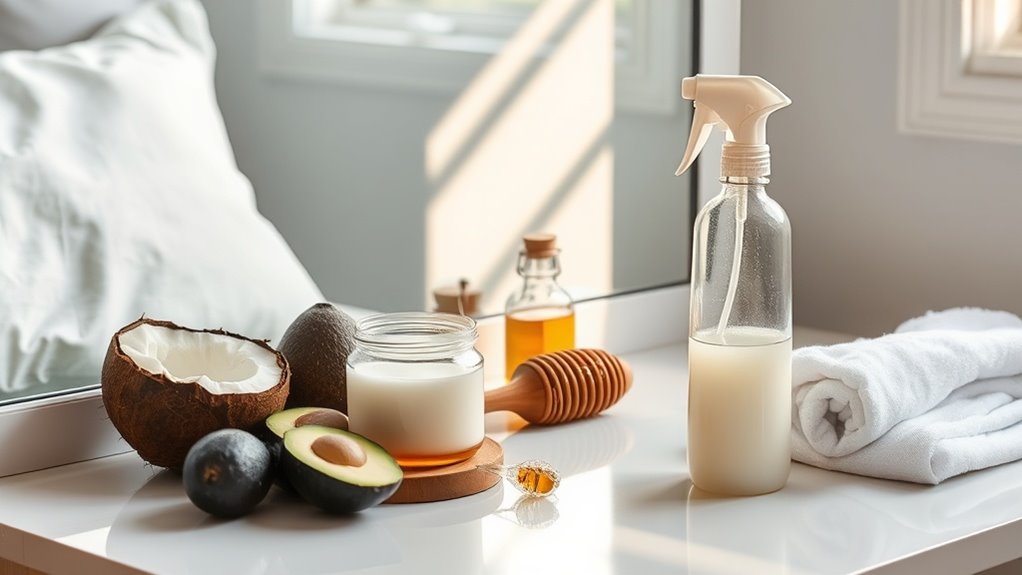Say Goodbye to Greasy Hair With These Natural Tricks
You can combat greasy hair naturally by targeting excess sebum production at its source. Start with simple lifestyle changes like using a boar bristle brush, changing pillowcases frequently, and avoiding frequent hair touching. Apply natural remedies like tea tree oil, witch hazel, or apple cider vinegar to regulate oil production and balance scalp pH. These evidence-based solutions, combined with proper hair care habits, will help you achieve lasting oil control.
What Causes Oily Scalp and Greasy Hair
An oily scalp results from overactive sebaceous glands that produce excess sebum, the skin’s natural oil.
These glands can become overstimulated due to hormonal changes, genetics, stress, or certain medications.
While searching for greasy hair remedies, you’ll need to understand that overwashing can worsen the condition by triggering increased oil production.
Your diet and lifestyle choices also impact sebum production.
High-glycemic foods, dairy products, and insufficient water intake can contribute to oily scalp conditions.
Environmental factors like humidity and pollution can make your hair appear greasier, as these elements combine with sebum on your scalp. Additionally, proper storage practices for hair care products can help maintain their effectiveness and reduce oiliness.
Natural Ingredients That Combat Excess Oil
Several plant-based ingredients have proven effective at controlling excess sebum production.
Tea tree oil contains powerful antimicrobial properties that help regulate oil production while cleansing the scalp.
Witch hazel acts as a natural astringent, tightening pores and reducing oiliness.
Apple cider vinegar helps balance your scalp’s pH levels and removes buildup, thanks to its antimicrobial properties that combat dandruff-causing fungi and bacteria.
Clay masks, particularly those containing kaolin or bentonite, absorb excess oils without stripping essential moisture.
Aloe vera provides lightweight hydration while controlling sebum production.
Rosemary and peppermint essential oils stimulate the scalp and help normalize oil secretion when diluted properly.
DIY Hair Masks and Treatments
Ready to take control of your greasy hair at home?
Create an effective egg white mask by separating one egg and whisking the white until frothy.
Apply to your scalp, wait 20 minutes, then rinse with cool water.
The proteins help absorb excess sebum.
Mix 2 tablespoons of bentonite clay with apple cider vinegar until you achieve a paste-like consistency.
Apply to your roots, let sit for 15 minutes, then shampoo normally.
This combination draws out impurities and regulates oil production.
For a quick fix, combine 1 tablespoon of cornstarch with 2 drops of tea tree oil.
Massage into your roots to absorb oil and fight bacteria.
Additionally, incorporating apple cider vinegar into your hair care routine can enhance scalp health and promote hair growth.
Daily Habits That Prevent Oil Buildup
Successfully managing greasy hair requires consistent daily practices that regulate sebum production.
Brush your hair before bedtime to distribute natural oils from roots to ends, and switch to a boar bristle brush to minimize scalp stimulation.
Don’t touch or play with your hair throughout the day, as this transfers oils from your hands.
Change your pillowcase twice weekly to prevent oil buildup, and keep your hair away from your face while sleeping.
Style your hair in loose configurations, avoiding tight ponytails that can trigger excess oil production.
Choose lightweight, water-based styling products, and rinse with cool water to seal the hair cuticle. Incorporating a scalp health routine can further enhance your hair’s overall condition and manage oil effectively.
Best Natural Shampoo Alternatives
Natural shampoo alternatives offer effective solutions for managing greasy hair without harsh chemicals.
Rye flour acts as a gentle cleanser, absorbing excess oil while maintaining scalp pH balance.
Mix bentonite clay with water to create a powerful detoxifying paste that draws out impurities and sebum.
Apple cider vinegar’s acetic acid helps normalize oil production and remove buildup. Combining it with water can also enhance fat burning, making it a versatile addition to your hair care routine.
Combine one part vinegar with four parts water.
Egg yolks contain lecithin, which effectively dissolves oils while adding protein to strengthen strands.
For a mineral-rich cleanser, mix baking soda with water to form a paste that regulates sebaceous glands.
Essential Oils for Hair Oil Control
Several essential oils possess powerful properties for controlling excess sebum production and balancing oily scalps.
Tea tree oil exhibits antimicrobial qualities that combat scalp bacteria while regulating oil production.
Rosemary oil helps normalize sebaceous gland activity and strengthens hair follicles.
You’ll find peppermint oil effective at cleansing the scalp and reducing oil buildup through its astringent properties.
To use these oils, dilute 5-10 drops in a carrier oil like jojoba or add them to your regular shampoo. Apply the mixture directly to your scalp, massage gently, and leave on for 15-20 minutes before washing. Regular use of these oils can promote stronger, healthier hair growth and enhance overall hair health.
Lifestyle Changes for Healthier Hair
Beyond topical treatments like essential oils, your daily habits greatly impact your hair’s oil production.
Research shows that lifestyle modifications can effectively regulate sebum levels and improve scalp health.
Make these evidence-backed changes to reduce excess oil:
- Limit hair washing to 2-3 times weekly to prevent stimulating oil glands.
- Switch to a silk pillowcase to reduce friction and oil transfer.
- Exercise regularly to balance hormones that affect sebum production.
- Maintain a low-glycemic diet rich in zinc and B vitamins.
Incorporating scalp massage can further enhance blood flow and support healthy hair growth.
These adjustments, when implemented consistently, can normalize your scalp’s oil production within 4-6 weeks.

